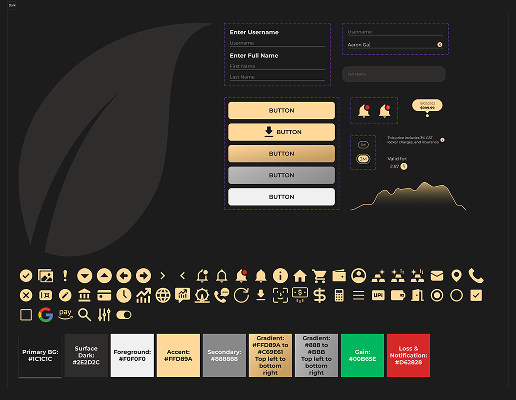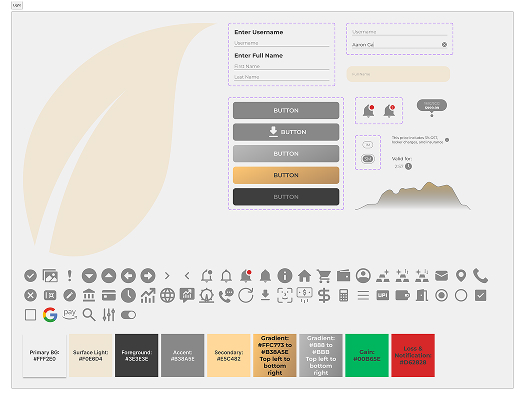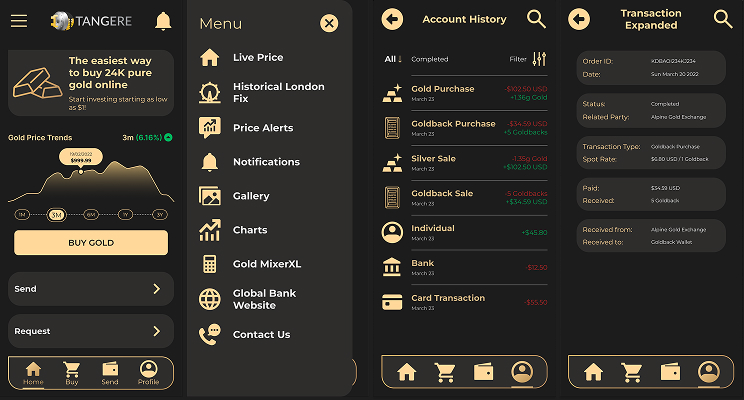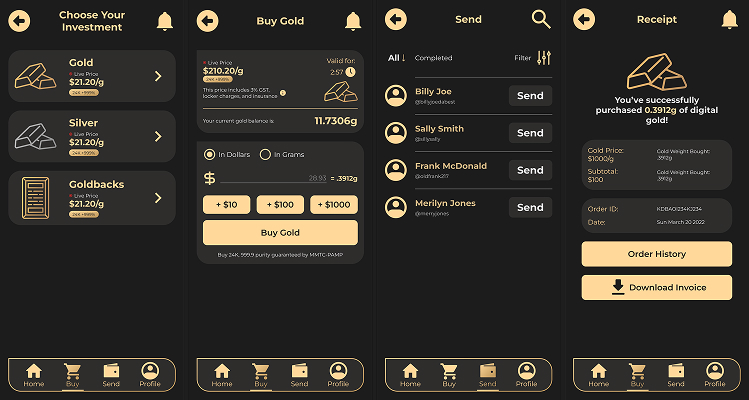Role: UX/UI Designer
Project Duration: 2 Months
Tools: Figma, Microsoft Teams
Platform: iOS & Android
Overview
Tangere is a mobile app that allows users to buy, sell, and transfer gold, silver, and Goldbacks. It combines the convenience of peer-to-peer transactions with the security and stability of real assets.
Welcome to Tangere
Securely unlock the value of Gold & Silver with our trusted payment app.
Inflation protected instant transactions with real gold & silver.
The Problem
Precious metal trading platforms are:
- Dominated by clunky, outdated websites
- Not optimized for mobile experiences
- Inaccessible to newcomers and small-scale traders
- Lacking peer-to-peer functionality
Users were frustrated by how complex and exclusive metal ownership felt. They needed something modern, friendly, and transparent.
The Goal
- Create a mobile-first platform for buying, selling, and transferring metals
- Make P2P metal transfers as easy as Venmo
- Allow fractional ownership and trades
- Design a clean, scalable component system to support rapid dev handoff
My Role
I joined the team after development had already begun. The original Figma files—created by five full-stack developers—needed refinement. My task was to:
- Refine and standardize UI components
- Rebuild and organize components using atomic design principles
- Ensure consistency across screens and flows
- Improve visual polish and scalability


Design Process
I began by reviewing the existing designs:
- Redundant components
- Poor use of variables and text styles
- Inconsistent spacing and iconography
Using atomic design methodology, I restructured the system into:
- Atoms (buttons, icons, inputs)
- Molecules (form fields, cards, rows)
- Organisms (wallets, transfer modules, charts)
This allowed us to:
- Easily theme and update UI components globally
- Maintain consistency across hundreds of screens
- Scale designs efficiently with fewer errors


Final Deliverables
- Fully refactored Figma library
- Responsive UI for iOS and Android
- Design system guide and documentation
Outcome
- Investors praised the clean, premium design
- Stakeholders felt prepared to move forward with the design, knowing it could be easily adapted and developed
Lessons Learned
- Atomic design saves time and headaches
- Documentation is an important design tool to keep developers and designers on the same page
- Clear communication and iterative collaboration are key for designing